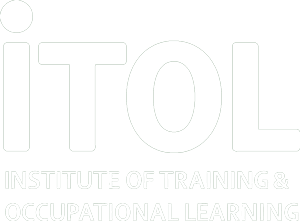This is the final installment of Why Training is Undervalued and follows on from our previous blog post which explained how many trainers have inadequate training and ways to recognise professionals who are properly qualified.
As perceptions of the training industry have changed over time for both managers and employees, it is important that the profession is strengthened from within.
Here’s a recap of the issues with the industry:
- Trainers are more interested in selling a program than helping the staff improve performance or organisation effectiveness. (We focused on this issue in our last blog post, if you haven’t already read this click here)
- Trainers generally come from other jobs, they rarely choose training as a primary career choice and therefore don’t have rigorous training in how to actually train others. In this instance trainers can benefit from short courses that further their training skills.
- The training profession is dominated by the idea that the trainer does not need to have an advanced knowledge of what they are teaching.
We will now focus on the third issue with the industry and look at how we can strengthen perceptions of the industry and overcome this idea.
Trainer Culture
The field of training is one of few where the dominant culture suggests that the trainer should know what it is that they are training. However, it is not unusual that there are trainers who have read a few books, attended one seminar then believe that they are ready to enter the world of training.
This does not mean that they have a limited knowledge of the training industry, as they could have learned various training methods through practice, but generally it is better for a trainer to have a detailed understanding of what it is that they are training. We wouldn’t want a kidney specialist to perform brain surgery; so why would we want a trainer who isn’t knowledgeable in their field?
Below are some quotes from trainers that demonstrate this way of thinking:
“What’s wrong with stand-up trainers working in content areas they are not expert in?”
“When I first started on my own [as a trainer] I said yes to almost anything.”
“We quite frequently undertake training projects in which we are not familiar with all of the training content”
Teachers which superficial knowledge tend to teach half-truths and myths giving a mixed understanding the content without being aware that they are doing so.
Trainers who cannot answer questions about their topic are quickly seen as unreliable and any training loses its value.
If a trainer can learn from a book then so can the students, at least at a superficial level.
Here are some customer tips to avoid misinformed trainers and take the most from the training sessions.
- Look for trainers that specialise in your topic, nobody can be an expert at everything but they can be of great use in their own speciality.
- Ask trainers for their sources for their content, knowledgable trainers will be able to provide numerous links and sources of inspiration, those with a superficial knowledge will only be able to provide one or two.
- Ask trainers if there is any type of training that they will not deliver, this is a trick question as trainers who answer that they have the ability to deliver training on any topic are not aware of their limitations and will hold a superficial knowledge at best.
This post concludes our series on Why Training is Undervalued, the various ways perceptions can be improved from within the industry and what customers should look out for in a good trainer.
It is important to remember the value of training to an organisation, while there are trainers who are not properly equipped to carry out training sessions, there are many who will deliver an engaging, insightful and educational experience that is guaranteed to increase skills and productivity in the workplace.
Sign up below for the latest training tips and tricks from iTOL HQ
Image courtesy of Mark Lord Photography: http://www.marklordphotography.co.uk/commercial-photography/




